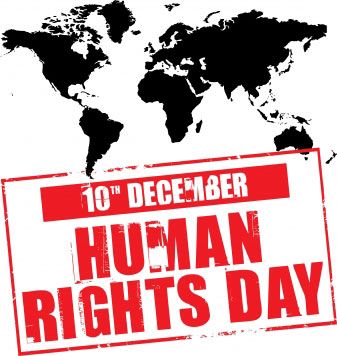In conjunction with Human Rights Day, a republication of Edmund Bon’s comment on the Malaysian Bar website written on 4 May 2007 after he took over as Chairperson of the Bar Council’s Human Rights Committee (HRC) in 2007. Subsequently, the HRC’s revamp on 11 May saw the establishment of a Policy & Law Reform Working Group (led by Zarizana Bt Abd Aziz), an Advocacy & Public Relations Working Group (led by Andrew Khoo), an Education & Training Working Group (led by Zarizana Bt Abd Aziz), a Complaints & Interventions Strike-Force (led by Amer Hamzah Bin Arshad), a Publications Working Group (led by Brendan Navin Siva) and The Orang Asli Project (led by Augustine Anthony). Good time to ask yourself what role suits you best to do something for human rights.
The Bar’s Human Rights Committee has been in existence for some time now. By virtue of our profession, members of the Bar are well-equipped to take an active part in the Committee which seeks to uphold, promote and protect human rights as established by international human rights norms. These norms are underpinned by notions of justice, equality and liberty. The law plays a large role in giving effect to the various nuances of these notions.
The considerable resources of the Bar are available for the administration of the work of all Committees set-up by the Bar Council. If utilised efficiently, much work can be done. More importantly, through the Bar, our strengths and skills as lawyers can be channeled to the key areas of action where human rights are concerned – undertaking research, drafting policy papers, advocating law reform, monitoring rights abuses, conducting training programmes and litigating cases – to name a few.
With an increasing number of human rights issues being played out in Malaysia on a daily basis, it is crucial at the initial stage that a working organisational structure be put in. The structure should cover the following broad areas:
- Law Reform and Policy
To lead human rights advocacy, it is imperative that the Bar conducts research in the field of human rights jurisprudence. The fruits of such research not only enlighten us on the state of human rights in Malaysia but proceeding to the next step, they form the basis of policy papers arguing for, and adopting positions on, human rights issues for dissemination. With the information ready at hand, the Bar would be in a strong position to provide informed recommendations and lobby the appropriate authorities more persuasively for changes through law reform.
- Public Relations and Advocacy
Taking our policy positions a step further, the Bar is well-positioned to organise and provide platforms for discussions on human rights, and avenues for “interaction” between stakeholders on rights issues. This discourse works towards improving understanding, and assists the process of “leveling-off” on various positions taken within the public fora. In tandem with the role of the Bar as facilitator is the need for the Bar to strengthen and extend its network of working contacts, and to form alliances and forge co-operation with other advocates of human rights (e.g. human rights bodies and NGOs) to achieve better leverage for our work (partly by reducing costs through the sharing of resources). Lobbying efforts through considered and structured campaigns are also an important part of advocacy work.
- Education and Training
The need for and the importance of, human rights education and training is clear. The “target” groups which the Bar should focus on are its own members, the public and the three arms of government – the legislature, the executive and the judiciary. The main objective of human rights education is to establish a culture of rights in the country such that human rights concepts form part of our belief system. In addition, it should empower role-players in human rights work.
- Complaints and Redress Interventions
As lawyers, we have a tremendous capacity to seek legal redress for victims of violations and abuses. We are trained to cull the facts, analyse the law and work the machinery of the justice system to assist complainants and victims. It is therefore necessary to step up our redress interventions through, for example, enhanced documentation of rights abuses, litigation of test cases or negotiations with the appropriate authorities for tangible remedies.
- Publications
The dissemination of information and ideas regarding human rights is a cornerstone strategy to create awareness, initiate dialogue and mobilise action. Lawyers are, by training, meant to be fluent in our use of language. Crafting articles, documents or papers for publication is supposedly our forte. More often than not however, tracts on human rights are couched in excessive legalism. Our challenge is to connect with the layperson and draw support for the cause through the use of simple, easy-to-understand language. Further, there is a need to “excite” all and sundry of the prospects for reform through human rights.
What next?
In conclusion, much can be done if we possess the will to walk the extra mile. Nurturing the development of human rights in Malaysia is a long-term project commencing with efforts to hasten the process of norm-building, internalisation and acceptance of human rights. The Human Rights Committee plays an important part in the process, and is an engine driving the “human rights delivery mechanism” within the Bar and external of it, in society.
Members are strongly urged to be part of this struggle by joining the Committee and actively contributing their time, skills and efforts.

